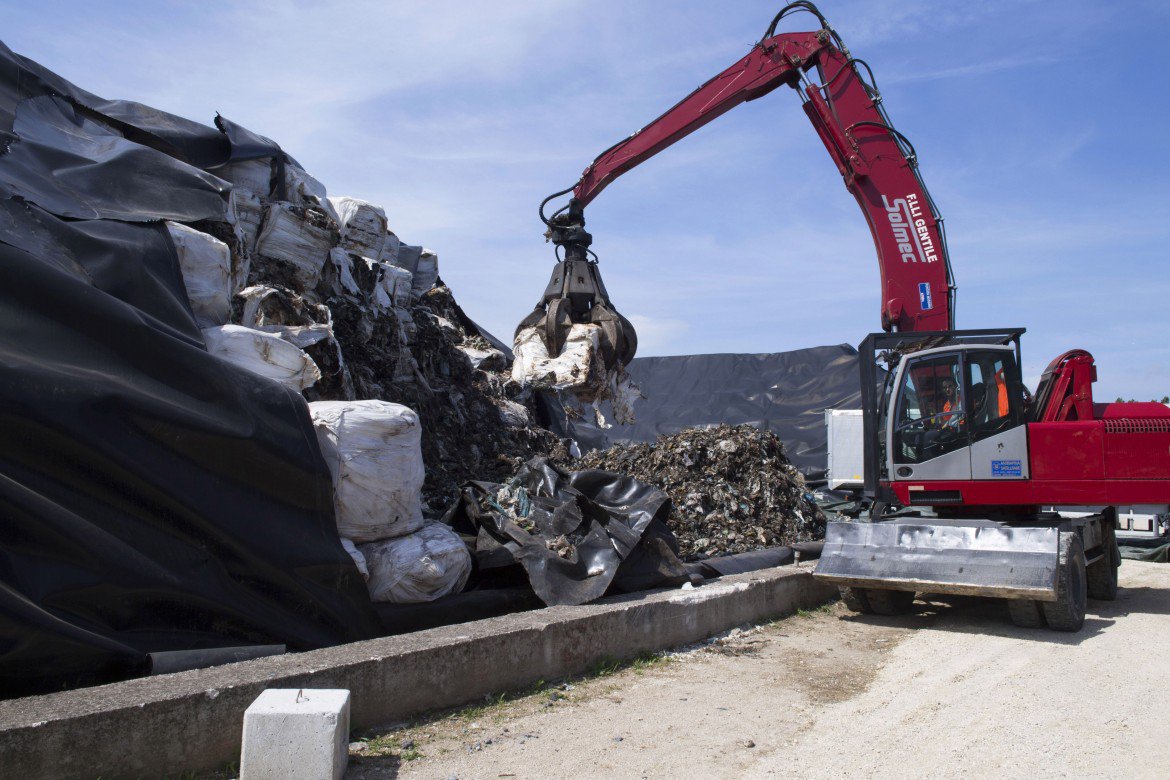Reportage
Italian ‘Land of Fire’ is exporting its trash to Africa
In southern Italy, trash fires have been burning for years. To solve its domestic waste problem, Italy is shipping it to Morocco, which has replied, “We are not a trash can.”

The refuse-driven fuel from southern Italy, an area known locally as the “Land of Fire,” will be delivered soon to Morocco be incinerated in Moroccan cement factories, in defiance of the European Community rules on dioxin emissions.
The first ship has yet to moor at the El Jadida quay with its cargo of waste from the Taverna del Re landfill, located between Naples and Caserta. This new traffic from one bank of the Mediterranean to the other has already raised a hornet’s nest of controversy in Morocco.
So much so that the ruling party, the moderate Islamist Justice and Development Party (PJD) is trying to mediate between the angry Moroccan environmental organizations, the local newspapers investigating their complaints and the powerful association of cement manufacturers, APC, which wants the new business and continues to issue reassuring statements on the harmlessness of burning Italian waste.
A press conference is scheduled for Monday at the Ministry of Development in Rabat to define the tasks of an inquiry commission, comprising civil society and government officials, that will investigate the true nature of the waste contained in the so-called “ecoballe” and their potential environmental danger.
Ahead of the COP 22, to be held in Marrakesh in November, informational about the environmental sensitivity of Morocco is spreading. On June 30, the site hespress.com published in Arabic an inquiry about the arrival of the first ship to the port of Jorf Lasfar, near the Atlantic city of El Jadida. This ship is carrying 2,500 tons of waste from Campania. In just 72 hours, the Coalition for Moroccan Climate Justice — a platform comprising nearly 200 environmental associations — managed to collect 10,000 signatures for a petition on charge.org addressed to the Ministry of Environment under the title “Morocco is not a trash can.”
Local newspapers have published several Italian articles on the Camorra affairs on the waste buried underground in the Campanian Land of Fire and the damage on health and food crops grown on contaminated soil, about the battles in Campania and in Italy and the committees against incinerators. And the hornet’s has grown even more agitated.
Citizens find it absurd that the government, so busy with the COP 22 to eliminate plastic bags from shops with the Zero Mika campaign, is not acting against the disposal of waste of dubious composition and origin.
Environment Minister Hakima El Haite said on July 5 that “the waste from Campania is not hazardous” but added immediately thereafter that a decision of “import has not been made yet.”
The waste, classified largely as refuse-derived fuel — known in English by the acronym RDF and as ecoballe in Italy — will be disposed of in cement kilns at 1,500 degrees Celsius, according to the site Medias24, citing the president of the cement manufacturer’s association, Mohamed Chaibi. This “waste to energy” would ensure a clean process, by providing renewable energy “as an alternative to fossil fuels.” According to Chaibi, it is essentially wood, plastic, paper and chopped dried organic waste.
The environmentalists in Africa point out that the only system approved for the treatment of waste is the one at Fes, which is potentially already saturated for a population of 35 million inhabitants of which 70 percent live in urban areas.
The engineer Paul Rabitti of Mantua, one of the leading experts in ecoballe from a scientific perspective in Italy, points out that RDF traffic of this type “poses quite a few problems.”
“The dioxin molecule breaks down at high temperatures, so the legal obligation is to incinerate waste at 850, but a higher temperature is not enough,” he explained by phone. “Because without adequate abatement systems, like the Denoix catalytic system in the BREF relationship according to the requirements of Brussels, dioxin forms again after combustion, this is called dioxin de novo. The cement kilns do not have these systems, but in Morocco, the European fines and judgments do not apply.”
The costs can be very affordable, even including transportation. It must be considered that Italy is forced to pay €120,000 daily to the E.U. for the ecoballe.
Originally published at http://ilmanifesto.info/dalla-terra-dei-fuochi-in-marocco/ on 2016-07-09
